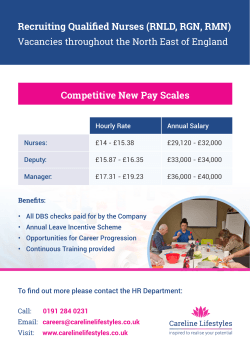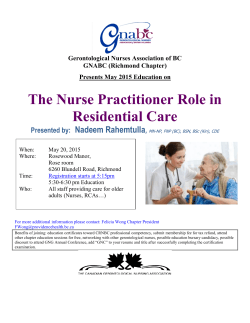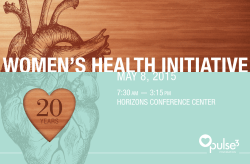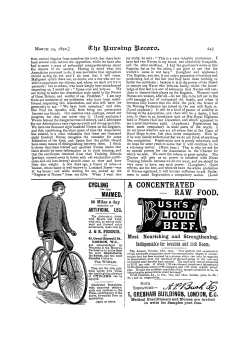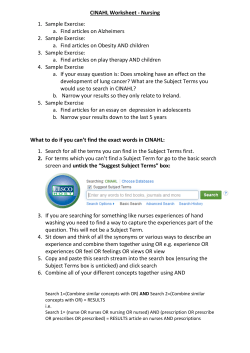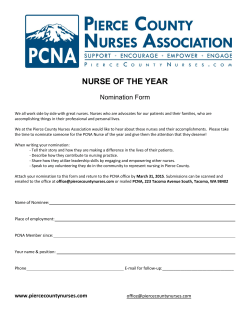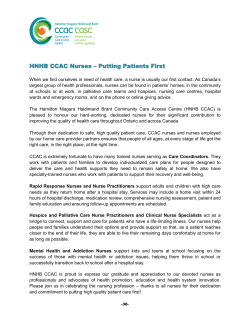
Jag är rädd, jag vill till mamma - Yngre barns, föräldrars och
”Jag är rädd, jag vill till mamma” Yngre barns, föräldrars och sjuksköterskors levda erfarenheter av nålprocedurer i vården Katarina Karlsson Akademisk avhandling För avläggande av doktorsexamen i Omvårdnad som med tillstånd av Nämnden för utbildning och forskarutbildning vid Högskolan i Jönköping framläggs till offentlig granskning fredag den 4 december 2015 kl.13.00 i Sparbankssalen, Högskolan i Borås. Opponent: Leg. Sjuksköterska. Docent Mats Eriksson Institutionen för hälsovetenskap och medicin, Örebro Universitet Forskarskolan Hälsa och Välfärd, Hälsohögskolan, Högskolan i Jönköping, 551 11 Jönköping Jönköping 2015 Abstract Title: “I’m afraid, I want my mommy”: Younger children’s, parents’, and nurses' lived experiences of needle procedures in health care. Author: Katarina Karlsson Opponent: Docent Mats Eriksson Language: Swedish Keywords: Younger children, parents, nurses, needle-related medical procedures, consequences, support, caring, lived experiences, phenomenology, lifeworld hermeneutic. ISBN: 978-91-85835-63-8 Aim: The overall aim of the thesis is to create knowledge about what it means for younger children to undergo needle-related medical procedures (NRMPs), and what caring support in relation to this means based on nurses’, parents’, and younger children's perspectives. Methods: The first and second papers used descriptive phenomenological analysis to describe the meanings of supporting younger children during NRMPs from the perspective of nurses (Ι) and parents (ΙΙ). The third and fourth papers used lifeworld hermeneutic analysis to explain and understand the consequences related to NRMPs (ΙΙΙ) and support (ΙV) during these procedures from younger children’s perspectives. Data has been collected by participant observations and lifeworld interviews documented by video-recorded observations, field notes, and audio-recorded interviews. In total 60 people participated, fourteen nurses, twenty-five parents, and twenty-one children. Main results: The results show that an important consequence for children of procedures with needles is experiences of fear. The child's fear affects how the child is able to manage the procedure and the support the child gets from adults is crucial to whether the child's fear increases or decreases. The support consists of giving support or receiving support. Parents support the child by safeguarding and protecting the child during the needle-related procedure; they “keep the child under the protection of their wings,” sometimes very close and sometimes a little further out under the wingtips. Nurses support the child by starting from individual child’s experiences and needs; they "balance on a tightrope" in an unpredictable situation. In the meeting between the child, the parents, and the nurses, the adults are guided by the child in what forms of support are provided. This continues until the needle-related medical procedure is completed and the child can walk proud and strong from the procedure with a feeling that "I can handle this.” Conclusions: Children’s need for support during needle-related medical procedures is primarily tied to children’s experiences of fear. For the child to experience a caring support, adults need to understand children’s experiences of fear as well as children’s need for support and what form the support should take. A caring support develops dialectically between children and adults in a circular movement. In such a dialectic, the child guides the adult and vice versa. That children have the capability of guiding adults during needle-related medical procedures shows that they are active and participating. Here it becomes clear that there is no objective location of the phenomenon of support. Support can therefore only be studied as a lived experience of those who need it.
© Copyright 2025
